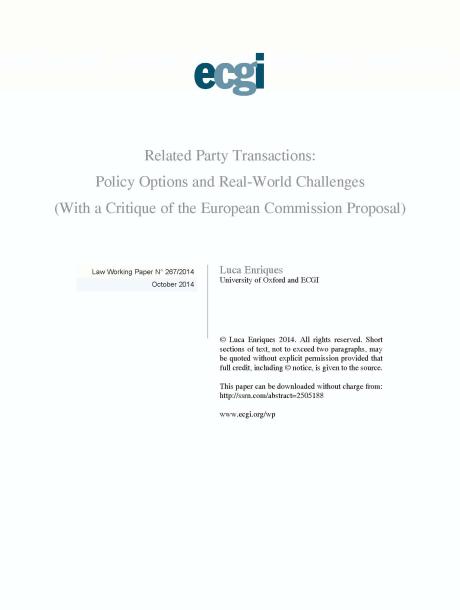
Related Party Transactions: Policy Options and Real-World Challenges (With a Critique of the European Commission Proposal)
Abstract
This paper provides a legal and policy analysis of transactions between a corporation and one of its ?related parties.? It first highlights the reasons why related party transactions (?RPTs?) are so common around the world. Next, it better identifies the phenomenon as a specific form of potentially abusive behaviour by dominant shareholders and managers, i.e. as an instrument for tunneling, asking why many jurisdictions provide for specific regulations on RPTs in addition to general rules or standards on tunneling. Then, it describes the main legal tools available to prevent corporate agents from diverting value from the corporation via RPTs. Finally, it provides a (partially) critical assessment of the measures put forth by the European Commission to harmonize rules on RPTs within the EU, based on the previous analysis of individual legal tools. As a conclusion, it shows that no regulation of RPTs (or tunneling) can succeed in preventing minority shareholder expropriation in the absence of sophisticated enforcement actors (specialized courts and/or active and committed securities regulators) and non-legal supporting institutions, like independent financial media and anti-tunneling social norms.





